Passing away: Key deaths of 2013
Manzarek to Mandela and Chavez to Thatcher – Al Jazeera remembers those the world has lost this year.

From a suspected Cambodian war criminal to the world’s beloved elder statesman, this year has seen its fair share of notable deaths. Actors, artists, scientists and scoundrels, these are the people whose lives have helped shape the world in which we live.
The stories of these lives lost can resonate with us all. “They celebrate triumph and disaster, all the hardships and victories that a person has gone through,” said Harry de Quetteville, obituaries editor of Britain’s Daily Telegraph newspaper.
Though we all have lives packed with comedy and tragedy, we are not all remembered equally after our deaths. In truth, not everyone can be a Nelson Mandela. But many people who contribute great and wonderful and terrible things to our world are often neglected, and their passing is little recognised.
“Scientists get no attention,” de Quetteville told Al Jazeera. “They do extraordinary work, which revolutionises our way of life.”
He picked British biochemist Fred Sanger as an example.
“He was given the Order of Merit, and won the Nobel twice. Everything we know about the Human Genome Project derives from him – you could hardly leave a more significant body or work. Winning the Nobel Prize twice put him in the same category as Marie Curie – and everyone’s heard of Marie Curie.”
Too often also overlooked are the casualties of war. Those people whose names get lost as they are converted to numbers. It is important to remember what the statistics actually represent each time we see a body count – that the lives lost in the fire and the smoke of battle, bombing or blockade are too numerous to pay proper tribute to each. But that each person whose death adds to these tallies had as much impact on the lives of the loved ones they leave behind as any of the rest of us do.
Here, Al Jazeera remembers some of those who died in 2013.
January – February – March – April – May – June – July –
August – September – October – November – December –
| January |
Nagisa Oshima was a Japanese filmmaker who directed dozens of movies, including “Merry Christmas, Mr Lawrence”. His work often challenged dominant sexual politics and ideas of political radicalism, psychoanalysis and bigotry. He died on January 15, of pneumonia, following several strokes. He was aged 80.
Andree Putman was an internationally acclaimed French designer. A descendant of the inventor of the hot-air balloon, and a friend of intellectuals and artists, she was a keen observer of social interaction and mixed contemporary art with interior design in her installations around the world. She died in her Paris apartment, aged 87, on January 19.
| February |
Ed Koch was a politician in the United States, who is credited with raising New York City from insolvency to financial powerhouse while he was mayor between 1978 and 1979. A Democrat, he was a hawkish supporter of Israel, and endorsed Rudolph Guiliani, Michael Bloomberg and George W Bush. He died of heart failure, aged 88, on February 1 – coincidentally the same day a documentary about his life went on general release.
 |
| Tunisian politician Shokri Belaid was assassinated on Feb 6 [AFP] |
Donald Byrd was a US jazz trumpeter who helped pioneer the funk and soul genres. He played with all the greats of his era: Art Blakey, John Coltrane, Thelonious Monk – and was a major influence on the young Herbie Hancock. He died, aged 80, at home in Teaneck, New Jersey, on February 4.
Afzal Guru – a former rebel of Indian-administered Kashmir – was convicted over the 2001 attack on the Indian parliament which resulted in the deaths of 12 people. Guru was secretly executed by hanging on February 9, despite mass protests in the disputed Kashmir.
Sarah Braverman was a Jewish paratrooper in the era of British Mandate Palestine. Despite being a Palestinian-Jewish member of the Palmach, the elite fighting force of the Haganah – the underground Jewish army which later evolved into the Israeli military – she was used by British spies to carry out dangerous missions inside Nazi Germany during World War II. She went on to become a founding member of the Israeli military’s women’s corps. She died, aged 95, on February 10.
Shokri Belaid was a Tunisian lawyer and opposition leftist politician. A student activist in the 1980s, Belaid remained a fierce critic of power politics throughout the rule of Ben Ali, and during the Islamist-led Tunisian government which followed the revolution. His assassination on February 6 sparked huge protests across the country and the government was dissolved.
| March |
Hugo Chavez was a revolutionary socialist, who came to power as the president of Venezuela in 1999. His career survived a short-lived coup in 2002, and he continued as the country’s leader until his death. He established a global reputation as much for his sweeping domestic social reforms – putting the army to work fixing roads and hospitals, making medicines free of charge and dramatically increasing the country’s literacy rate – as he did for his firebrand speeches denouncing the “imperialism” of the United States and other Western powers. After a long battle with cancer, Chavez died, aged 58, on March 5.
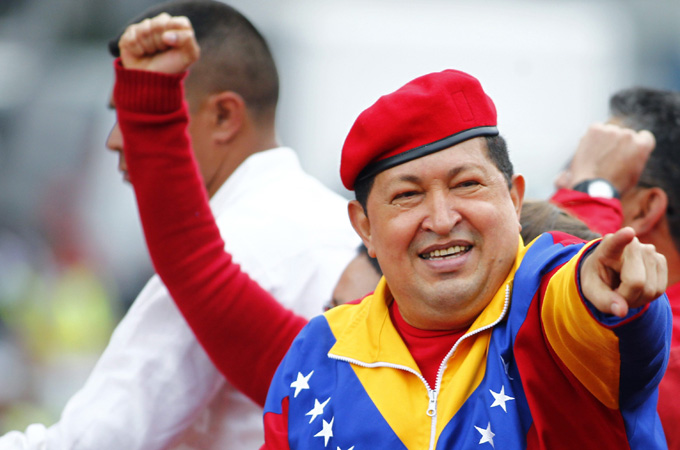 |
| Hugo Chavez, president of Venezuela, died March 5 [Reuters] |
Leng Sary was a co-founder of the Khmer Rouge, the group remembered for coordinating the Cambodian Genocide with around two million people killed as a result of political executions, disease, starvation and forced labour. The brother-in-law of Pol Pot, Sary was educated in Paris before the Khmer Rouge came to power. He was on trial for genocide and war crimes when he died following heart problems, aged 87, on March 14.
Zillur Rahman was the president of Bangladesh. The Awami League leader’s term in office was marked by shows of clemency, in which he issued a series of controversial pardons. He died in Singapore, aged 84, surrounded by his three children, on March 20.
Boris Berezovsky was an exiled Russian oligarch and mathematician. A fierce critic of President Valdimir Putin, Berezovsky was granted political asylum by Britain in 2003. He made his millions during the 1990s, as the country privatised much of its state assets, and assumed control of Russia’s main television channel. An advocate of capitalist interference in Russia’s political process in order to balance out former-Communist Party members’ interference, he and other exiles in London avowed to oust Putin. He died, aged 67, in his home outside of London, on March 23. According to police, his death was consistent with hanging by suicide, and there was no evidence of a violent struggle.
| April |
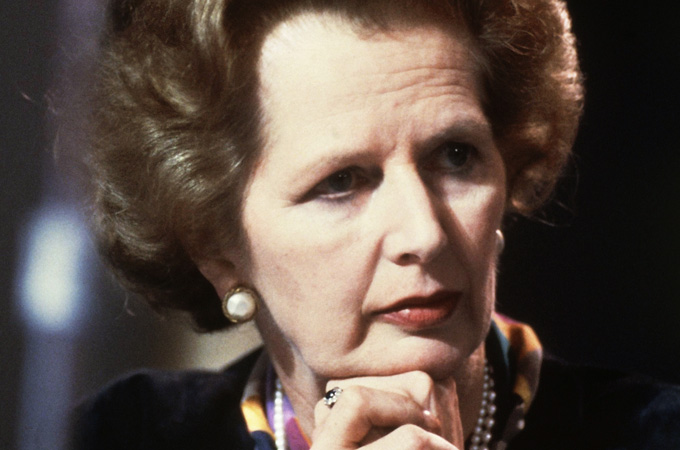 |
| Margaret Thatcher, former British PM, died April 8 [AP] |
Margaret Thatcher was Britain’s first female prime minister. A highly divisive figure, she became known as the “Iron Lady” for her trademark bullish intransigience. Targeting the strength of trade unions in favour of “flexible” job markets, she presided over an agenda of mass privatisation and financial deregulation. Overseas, she was closely aligned with US President Ronald Reagan, both in terms of economics and geopolitics, during the later days of the Cold War. Her premiership went on to be defined by her actions during the Falklands War. She dismissed Nelson Mandela’s ANC party as “a typical terrorist organisation” and supported both the Khmer Rouge and Chilean dictator Augusto Pinochet. She died at the Ritz Hotel in London, aged 87, on April 8.
Robert Edwards was a British physiologist, whose pioneering work in reporductive medicine and in-vitro fertilisation scientist led to a Nobel prize. It is thought more than five million babies have been born to parents otherwise unable to have children as a result of Edwards’ research. A lifelong academic, he also edited medical journals and won severl prestigious awards. He died, aged 87, on April 10 following a long lung illness.
| May |
 |
| Jorge Videla, Argentinian dictator, died May 17 [AFP] |
General Jorge Videla was a dictator who seized power in Argentina in a 1976 coup. Between 15,000 and 30,000 political dissidents were killed during the five years that followed. After his fall from power, he was prosecuted for kidnappings, forced disappearances, widespread torture and the extrajudicial murder of political opponents, leftist activists and their families, at secret concentration camps. A military man, through and through, he rose from a junior infantry officer to become general commander of the armed forces. Videla was also convicted of the theft of many babies born during the captivity of their mothers, passing them on for illegal adoption by associates of the regime. He took the secrets of which children were taken by which families to his grave. He died aged 87 in prison, of injuries sustained during a fall in the shower, on May 17.
Ray Manzarek was the co-founder of the legendary 1960s group The Doors, fronted by Jim Morrison. Manzarek was the creator of the band’s signature organ sound, and enduring songs such as Light My Fire owe a lot to his distinctive style. He continued to work as a musician, singer, producer, film director and author after Morrison’s death collaborating with artists as diverse as Weird Al Yankovic and DJ Skrillex. Manzarek died, aged 74, from cancer, on May 20.
| June |
Esther Williams was a former US swimming champion, Hollywood star and 1940s pin-up model. As a child, she learned swimming strokes which had been deemed “male-only”, such as butterfly stroke – in which discipline she would later win several awards. Following her retirement from film in the 1960s, Williams became a businesswoman, with product endorsements including swimming pools and retro swimwear, living up to her MGM studio nickname “The Million Dollar Mermaid”. She died in her sleep, aged 91, on June 6.
 |
| Jiroemon Kimura, oldest male ever, died June 12 [Reuters] |
Fatai Rolling Dollar was a celebrated Nigerian musician. A performer for nearly 60 years, he was both a gifted guitarist and a mentor to younger musicians across the country and internationally. After marrying three times, and fathering 16 children, he died, aged 86, on June 12.
Jiroemon Kimura was the world’s oldest person and the oldest male ever known to have lived. He worked in post offices in Japan for nearly 50 years, before becoming a farmer. Small portions of food were the key to a long and healthy life, he declared. He died of natural causes, aged 116, on June 12.
Marc Rich was a controversial financier who became one of history’s most financially successful commodities traders. He was indicted in the US over tax evasion and for making oil deals with Iran during the Iran hostage crisis – but received a presidential pardon from President Bill Clinton on Clinton’s last day in office. Known for developing relationships with dictators and embargoed countries, Rich had regimes from left to right in his client list – from Fidel Castro’s Cuba to Pinochet’s Chile, via Nicolae Ceausescu’s Romania and Gaddafi’s Libya. He doubled the price of oil bought from Arab nations and sold it to US companies, and also used his closeness with Iran to find suitable contacts for Israel’s Mossad spy agency. He died of a stroke aged 78, on June 26, in Lucerne, Switzerland, and was buried in Israel.
| July |
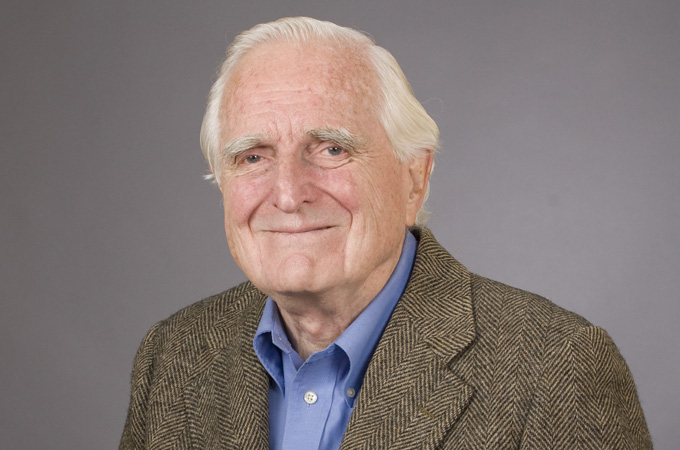 |
| Douglas Engelbart, inventor of the computer mouse, died July 2 [EPA] |
Douglas Engelbart was a computing pioneer and US engineer who invented the computer mouse. His specialist research in human-computer interaction eventually led to hypertext (such as weblinks) and graphic user interfaces – such as Windows, iOS or other “point-and-click” operating systems. He died on July 2 at the age of 88, due to kidney failure, after a long battle with Alzheimer’s disease.
JJ Cale was a US singer-songwriter, and one of the originators of the laid-back Tulsa Sound. His music was covered by Eric Clapton, Phish, Lynyrd Skynyrd and Johnny Cash. He died of heart failure, aged 74, on July 26.
Berthold Beitz was a banker, oil worker and steel magnate who became patriarch of German industrial giant ThyssenKrupp, and was credited with restoring German industrial power. During World War II, he saved at least 250 Jews from being sent to Belzec extermination camp by listing them as his workers. He also hid Jews in his home, and was understood to have saved around 800 from being killed by Nazi forces. He died aged 99 at his holiday home on the isle of Sylt, off the northern coast of Germany, on July 30.
| August |
Laszlo Csatari was one of the world’s most wanted Nazi war criminals. In June 2013, he was charged with war crimes, and was alleged to have sent Jews to Auchswitz. He died having not faced trial two months later, aged 98, on August 10.
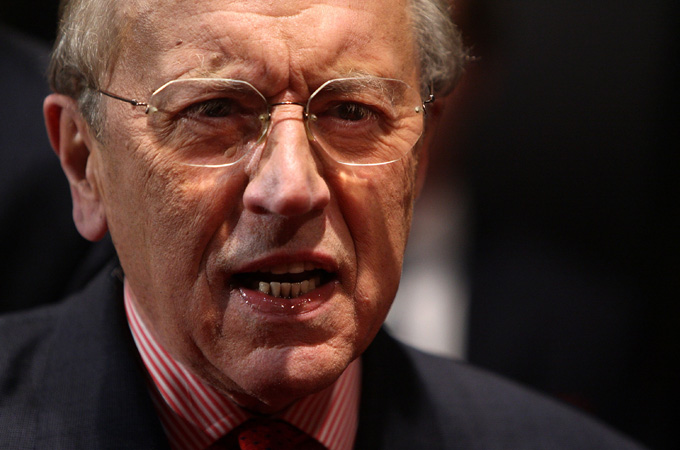 |
| Al Jazeera host David Frost died August 31 [Getty] |
Prince Johan Friso was a member of the Dutch royal family. He was buried under an avalanche while skiing in Austria in early 2012, and regained only minimal consciousness. He had been a sought-after management consultant and was a founding shareholder of WizzAir. He died, aged 44, after complications from his injuries developed, on August 12.
Seamus Heaney was a celebrated Irish poet-playwright. Described as “probably the best-known poet in the world”, he had held academic positions at Belfast, Oxford and Harvard. He was awarded the Nobel prize for literature in 1995. Aged 74, he texted his final words: “Noli timere” [Latin: “Do not be afraid”] to his wife moments before dying in a Dublin hospital on August 30.
David Frost was a giant of British and international television. Already a household name in the UK as a comedian and satirist, Sir David shot to international prominence with his monumental interview series with disgraced US President Richard Nixon. As a presenter, he had an easy charm that often disarmed some of his more highbrow guests, eliciting unusual – and sometimes devastating – responses. Since the launch of Al Jazeera English, Sir David hosted a headline-making interview show, speaking with people such as Tony Blair and Benazir Bhutto. He died, aged 74 of a heart attack on board the Queen Elizabeth cruise liner, on August 31. He is sadly missed by his colleagues at Al Jazeera.
| September |
 |
| Sushmita Banerjee, Indian author, was killed on Sept. 4 [AFP] |
Ray Dolby was a US sound engineer who pioneered noise-reducing and surround-sound audio technologies. He worked on prototypes of video tape recorders, and founded Dolby Laboratories. He died of leukemia at his home in San Francisco at the age of 80 on September 12.
Sushmita Banerjee was an Indian author who had written a book about her dramatic escape from the Taliban in the 1990’s. In 2003, her book was turned into a major Bollywood film titled Escape from Taliban . She was shot dead by unidentified gunmen on September 4 in the eastern Afghan province of Paktika. She had moved back to live with her Afghan businessman husband shortly before her death.
| October |
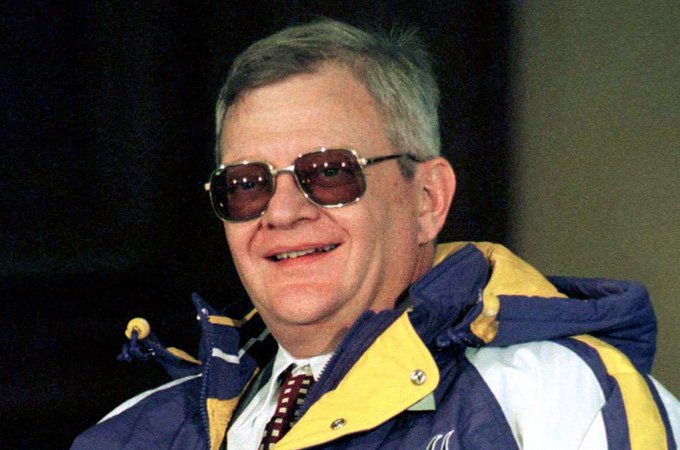 |
| Spy novel author Tom Clancy died Oct. 1 [Reuters] |
Tom Clancy was a best-selling author of spy novels, whose work was noted by a particular eye for detail, especially regarding weaponry of the Cold War era. His first novel, The Hunt For Red October, was written while he worked for an insurance company. When he died, aged 66, on October 1, more than 100 million copies of his books were in print.
Vo Nguyen Giap was a Vietnamese general who will be remembered for defeating French and US forces. A former journalist, Giap led Vietnamese resistance against Japan’s occupation of the country during World War II. He later became the most prominent military commander during the Vietnam War, overseeing the expansion of the Vietnamese army from a small force to a large conventional army. After the fall of Saigon, Giap was appointed deputy prime minister and oversaw the invasion of Cambodia which drove the Khmer Rouge from power. He died in a military hospital, aged 102, on October 4.
Rabbi Ovadia Yosef was the spiritual leader of Israel’s ultra-orthodox Shas party. The Talmudic sholar was born in Baghdad, and became Israel’s Sephardic chief rabbi in 1973. Often a controversial figure, Yosef said that women should confine themselves ot sewing, and blamed Hurricane Katrina on divine retribution for US government support of the Gaza disengagement. He died, aged 93, on October 7.
Erich Priebke was a captain in the Nazi’s SS police force, who escaped to Argentina using a Vatican passport after the war ended. In the 1990s, he was found guilty of war crimes, having spoken about leading the Fosse Ardeatine massacre, in which 335 Italian prisoners were executed. He died, aged 100, on October 11. His funeral sparked violent clashes between fascist sympathisers and antifascist activists, and his body was buried in a secret location, to prevent his grave from becoming a shrine for neo-Nazis.
Arsala Jamal was the governor of the Afghan provinces of Khost and Logar. Before his political career, he was an NGO worker, specialising in water and sanitation initiatives. A close adviser and friend of Afghan President Hamid Karzai, Jamal was assassinated in a bomb blast, aged 47, on October 15 – the first day of the Eid festival.
Manna Dey was a superstar Bollywood singer who recorded more than 4,000 songs spanning a six-decade career. Fond of fusing Indian classical music with Western pop sounds, he sang mostly in Hindi – but also in Bengali, Bhojpuri, Punjabi, Assamese, Oriya, Gujarati, Marathi, Kannada and Malayalam. He died following a cardiac arrest in a Bangalore hospital, aged 94, on October 24.
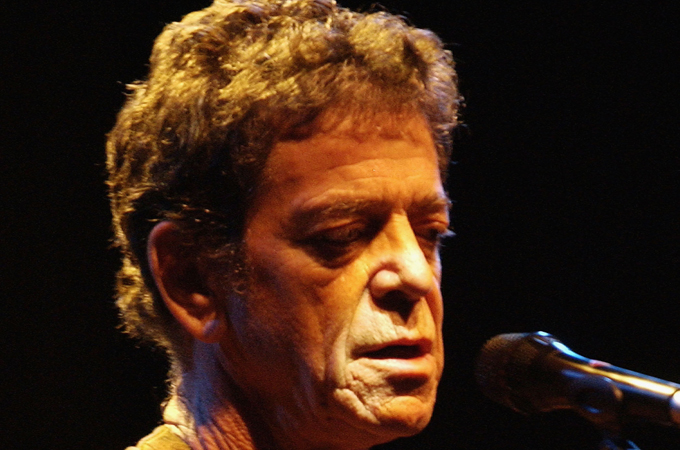 |
| Lou Reed of The Velvet Underground died Oct. 27 [Getty] |
Lou Reed was a US singer-songwriter who led the rock band The Velvet Underground in the 1960s and had a proflific recording career thereafter. After receiving electroconvulsive therapy which unsurprisingly failed to “cure” his bisexuality, he studied language and writing at Syracuse University. He frequently cited Andy Warhol as a mentor, and the artist collaborated several times with Reed and The Velvet Underground. Despite their initial lack of commercial success, the band has been dubbed one of the most influential groups in the history of popular music. He died at home in New York on October 27, aged 71, after complications followed liver surgery.
| November |
Hakimullah Mehsud was the leader of the Pakistani Taliban . He had built a reputation as a fierce field commander in the armed group, then operating under the auspices of Baitullah Mehsud, masterminding a campaign of attacks against Afghanistan-bound NATO convoys in the Khyber tribal area. As leader of the Pakistan Taliban, he spearheaded an increasingly widespread campaign against the Pakistani state, as well as attacks against US and NATO troops inside Afghanistan – which led to Washington placing a $5m bounty on his head. He was killed in a US drone airstrike on November 1, aged 33.
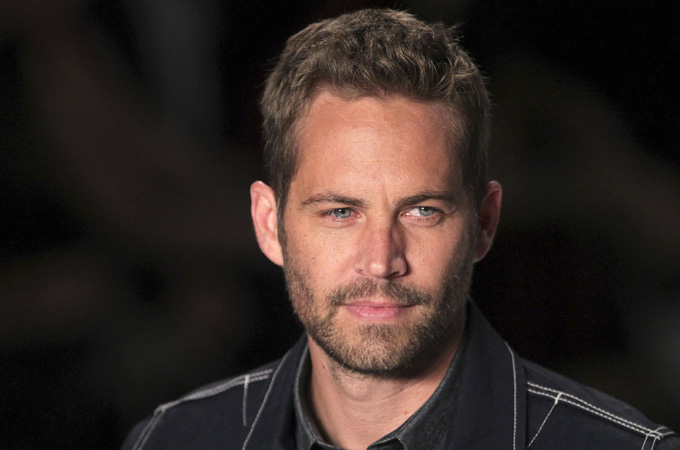 |
| Fast and Furious star Paul Walker died Nov. 30 [Reuters] |
Doris Lessing was a British author and Nobel laureate. After leaving school at age 14, she began to study politics and sociology leading eventually to her joining a communist book club. Her radical writing went through three phases; Communist, philosophical and Sufi-related themes emerged throughout her career. She died at her London home, aged 94, on November 17.
Frederick Sanger was a British biochemist who won the Nobel Prize for Chemistry twice – one of only two people to have won the award twice in the same category. A devout pacifist and a member of the Peace Pledge Union, his work on the structure of proteins led to the development of DNA fingerprinting. Sanger’s methods were eventually used to map the entire human genome. He turned down a knighthood, but eventually accepted membership of the Order of Merit – a dynastic order recognising distinguished service whose membership is restricted to 24 living members. He died in his sleep, aged 95, on November 19.
Paul Walker was a US actor best known for leading the movie series The Fast and The Furious , which centred on high-octane car-chase sequences and explosive stunts. An avid car enthusiast, he died in a 95mph crash in California on November 30.
| December |
 |
| South Africa apartheid icon Nelson Mandela died December 5 [Louise Gubb] |
Nelson Mandela was the hero among many fighters in the struggle against apartheid in South Africa. Born into a tribal royal family, he grew up with humble beginnings as a goat shepherd before becoming a lawyer and leading an armed revolutionary campaign of sabotage against the racist South African state. He served more than 27 years in prison, being elected the country’s first black president in the years following his release and the dismantling of apartheid. He served one term in office, during which a new constitution was developed, the country’s Truth and Reconciliation Commission was created, and sweeping reforms were made to land ownership laws, healthcare and social mobility programmes while tackling institutionalised racism, poverty and inequality. He retired as one of the world’s elder statesmen and dedicated the rest of his life to charitable work. He died after a long illness, aged 95, on December 5.
Peter O’Toole was a British-Irish actor who holds the record for the most Oscar nominations – eight – without a win. A trained Shakespearean actor, he shot to international fame in Lawrence of Arabia, before going on to appear in hundreds of movies and stage performances. A notorious womaniser and all-round hellraiser, he had his pancreas and part of his stomach removed after his alcoholic excesses, which resulted in diabetes. An anti-war activist since the 1950s, O’Toole reportedly turned down a knighthood from the Queen in 1987. He died, aged 81, at hospital in London.
Joan Fontaine was a British-American actress whose career spanned decades. Born in Tokyo, Japan, to British parents, she moved to the US to help get over a severe case of anaemia. She was married and divorced four times, and the rivalry with her sister, Olivia de Havilland, was legendary. Fontaine and de Havilland are the only pair of siblings to have won lead acting Academy Awards. She appeared in movies and theatre productions from the 1930s through to the mid-1990s, including the silver-screen classics Rebecca and Ivanhoe . She died in her sleep at home, aged 96, on December 15.
Ronnie Biggs , for much of his early life a petty thief, will be best remembered for his part in the criminal enterprise known as “The Great Train Robbery”, and for his subsequent escape from prison and lifetime as a fugitive. In 1963, Biggs and his associates stopped and seized the night mail train travelling between Scotland and London, making off with around 2.6m (around 46m in today’s money). He escaped from jail in 1965, scaling the prison wall with a home-made rope ladder and dropping into a waiting removal van on the other side, and went on the run, to France, Australia and eventually Brazil – where he lived openly for many years in defiance of British efforts to return him to prison. He returned voluntarily to Britain, aged 71, and was arrested at the airport. Eventually released on compassionate grounds in 2009, he suffered a series of strokes and became unable to speak. He died in a London care home, aged 84, on December 18.
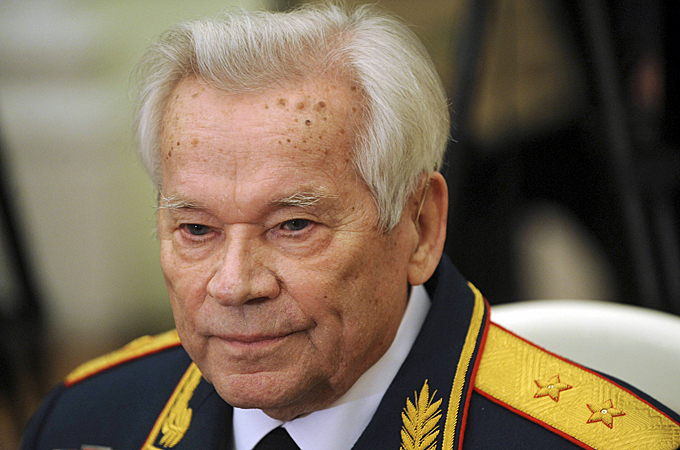 |
| Mikhail Kalashnikov, inventor of the AK47. died Dec. 23 [Reuters] |
Mikhail Kalashnikov was a Russian general and weapons designer, most famous for the creation of the gun which bears his name, the Avtomat Kalashnikova 1947 Model , also known as the AK-47. While the gun is the most widely-produced assault rifle the world has ever known, with around 100 million in circulation today, Kalashnikov emphasised that it was “a weapon of defence”. Originally a tank mechanic during World War II, his fondness for, and skill at, weaponry design was soon noticed by the Russian military. He reportedly never profited from the sale of the rifle, blaming the Nazis for turning him into a firearms designer – and said that he would rather have invented better lawnmowers instead. He was, in later life, associated with a company that licensed his name as a brand on everything from vodka to pocket knives. He died in a Udmurtian hospital, aged 94, on December 23.
| The casualties of war |
Deaths in Iraq: 7,598 civilians and 952 Iraqi security forces killed between January 1 and December 25, according to the Associated Press and UN sources. Despite dropping from the headlines, 2013 has been one of the deadliest years for Iraqis since the US-led invasion in 2003.
Deaths in Afghanistan: Between January 1 and the end of November, 2,730 people were killed, and a further 5,169 were injured, according to the UN Assistance Mission in Afganistan, a ten percent increase on the same period the previous year. In addition, poppy cultivation for the production of heroin has risen 36 percent in 2013, with some 209,000 ha (2,090 sq km) currently under cultivation.
 |
| At least 7,598 civilians and 952 security forces have been killed between Jan 1 and Dec 25 this year. |
Deaths in Syria: Given the difficulties of restricted media access in Syria, it is difficult to ascertain precise numbers of deaths – with estimates ranging from 84,000 to 150,000 killed in the nearly three years since the conflict began. This would seem to indicate as many as between 28,000 and 50,000 people may have been killed in Syria in 2013.
Deaths in CAR: The Central African Republic has been wracked by violence since a group of rebels ousted President Francois Bozize in March. As many as 1,000 people were massacred in a period of just two days earlier in December, according to rights groups, with dozens – perhaps hundreds – more deaths in tit-for-tat sectarian killings in towns and villages across the country in recent months.
Deaths in South Sudan: More than 1,000 people were killed in and around Juba in December, as inter-ethnic clashes followed what President Salva Kiir, of the Dinka tribe, described as an attempted coup orchestrated by the country’s vice-president, Riek Machar, a member of the Nuer tribe. UN analysts have said it remains difficult to ascertain the exact number of deaths, and there have been reports of truckloads of bodies being dumped in the River Nile to hide the true scale of the killings.
Follow James Brownsell on Twitter: @JamesBrownsell
